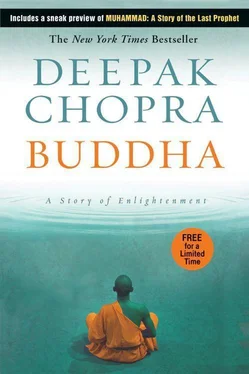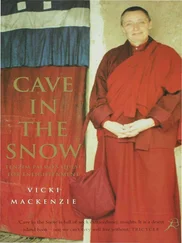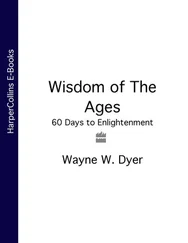What eventually broke was Assaji’s own body. He got sick alone in the jungle; for all he knew it was a sign. Wrapped in his shawl, he suffered the delirium of fever for five days and nights. When the fever broke, he shivered with cold sweat. Slowly his body returned to health, but with it came an unexpected change. Assaji grew hungry again. He craved a real meal and would scour the jungle floor for a dead parrot to take back and cook.
If I am reduced to unwholesome food, my quest is over, he thought. He wasn’t willing to sink to a subhuman level, no matter how enormous the goal of enlightenment might be. He decided to tell Gautama. One morning he crouched in front of his motionless brother, wiping away the dirt from his face with water from the gourd.
“I’m going,” he said. Gautama showed no signs of hearing him. “I must think about my soul. If you die and I let you, my sin is as great as murder. You shouldn’t be responsible for that. I’m ashamed to speak of sin to someone like you, but there’s no shame in it if you decide to come with me.”
Assaji’s guilt made him feel that he’d said too much already. Like the others, his faith had been worn down too far. Assaji lingered around camp a few more days. He piled fruit next to Gautama and a week’s supply of water. How strange that this immobile icon should still be alive and that behind his mask he was fighting such a huge battle. Face the wall like a statue and give them nothing. Assaji remembered Gautama’s rallying cry, but he couldn’t follow it anymore. He left camp before dawn without a sound.
Gautama didn’t hear him depart; he had heard nothing since he became aware-and then only at the farthest edge of his mind-that Kondana was gone. It didn’t matter. He had come to realize that he was walking the path alone. Two journeys had to be made without companions: the journey to your death and the one to enlightenment.
In his meditations he had arrived at heaven before the others, but he said nothing about it. There was dazzling beauty; golden celestial beings materialized all around him, but then he took a route the other monks would not. Gautama turned his back on the celestial beings. “I’ve already known pleasure. What good does it do me to feel more?”
“This is heavenly pleasure,” the celestial beings said.
“Which I can enjoy forever only after I die,” said Gautama. “Therefore it’s as good as a curse.” He walked away and asked to see more suffering.
Thus he arrived at the gate of hell, where Gautama saw the terrifying torments that lay beyond. But no demons came for him. Instead he heard these words: “No sin brings you here. Do not pass.”
He entered anyway, of his own free will. I’ve known fear, he thought. And fear is death’s chief weapon. Let me experience the worst torment, and then fear will lose its hold over me.
The phase of hellish torment lasted a long time because every morning his broken bones and flayed skin grew back. “Where is Mara?” Gautama asked. “I need to see the worst that he can do too.” But for some reason Mara hung back and never appeared. Gautama wondered if this was a trap, but after a while the torments became routine, and his mind grew bored. One morning the demons failed to appear, and then the scenes of hell disappeared, giving way to dark, motionless silence.
Gautama waited. He knew he had defeated every form of suffering he could imagine. His body no longer felt pain; his mind gave rise to not a single desire. And yet no sign came that he had reached his goal. Like an endless, calm night, the silence bathed him. Gautama decided to open his eyes.
At first there was only a dim sensation of being wrapped in a blanket, which after a time he realized was his body. He looked down. It was midday, but someone had positioned him under the jungle canopy where no sunlight ever penetrated. Surveying himself, Gautama saw two crossed sticks. Legs. Two dried monkey paws. Hands. He noticed a pile of rotting fruit beside him, covered with ants and wasps. Suddenly he realized that he was thirsty. He reached for his water gourd, but the last inch of liquid inside was green and filled with mosquito larvae.
He could feel, as he grew used to being in his body again, that it could endure no more. Yet all he could think about was finding the five monks to tell them that he was enlightened. Gautama tried to uncross his stick legs and get up, but when he moved them an inch, the wasted muscles screamed with pain. He stared at them with a slight frown of disapproval, like a new father who feels helpless when the baby cries.
Gautama felt no sympathy for his body, but it would have to be dealt with. He willed his limbs to move, and slowly he began to crawl along the forest floor. It felt damp and hot; there were vermin that slid under his skin, and fungi and rocks. He could hear running water nearby. He sensed his body’s desperate thirst. Maybe he would get to water in time, maybe not. He kept crawling, but the forest floor barely crept beneath him now. He could practically count each beetle that his weight crushed. A small snake, colored brilliant red, slithered away at the level of his face. The air became very still, and moving any farther, even at a crawl, became impossible.
Lying there, he never expected that enlightenment would be the last thing to happen before he died.
While he lay motionless on the ground, Gautama became dimly aware that a shadow had fallen over him. When it moved, he assumed it must be the outline of a large animal, a predator drawn by his smell. The animal would most likely be hungry, yet it made no difference to Gautama how his time on earth ended.
“Please don’t die.”
The girl’s voice caused his eyes to look up, almost against his will. She was startled and moved back shyly. She must have been all of sixteen, and alone. Gautama closed his eyes and waited for her timidity to send her away. Instead, he felt soft warm hands on either side of his face. The girl raised his head slightly and wiped the grime away from his cheeks with a corner of her sari. It was faded blue and threadbare, a poor girl’s sari.
“Here.”
She pressed something to his mouth. A bowl, and its edge hurt his cracked dry lips. Gautama shook his head, and a croaked word came out of his throat.
“No.”
The girl said, “Are you a god?”
Gautama felt a wave of delirium; her words sounded meaningless. The girl said, “I’ve come to the river to be blessed by the god who lives there. It’s my wedding day in a month.”
A god? Gautama couldn’t even smile. He shook his head slightly and let his face fall back to touch the warm jungle floor. But from wasting away he had become weaker than the girl, so he couldn’t resist when she turned him over and held him upright in her arms. She did this effortlessly.
“You must.” She held the bowl to his mouth again. “Don’t be stubborn. If my offering is good enough for a god, you’re not better than him, are you?”
Now a smile rose inside Gautama. “Go find your god,” he mumbled. He clenched his jaw so that she couldn’t pour the contents of the bowl into him. There was no purpose in her being there.
“I won’t leave you here,” she said. “I can’t have people saying that Sujata did something like that.”
In the midst of his torpor, Gautama’s mind suddenly became alert. What she said didn’t seem possible. “Tell me your name again.”
“Sujata. What’s wrong?”
The girl saw tears streaming down the dying man’s cheeks. His emaciated body began to tremble in her arms. She felt terribly sorry for him. Weakly he opened his mouth, and Sujata poured a little food into it. She had cooked sweet rice in milk for the river deity. The dying man accepted more. His stubbornness had vanished, though the girl had no idea why.
Читать дальше












